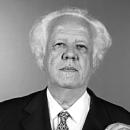
For Latinos, soccer virtually a religious experience
MÁS EN ESTA SECCIÓN
It's all or nothing. Soccer has the power to generate euphoria or the crushing sadness of a long-remembered defeat.
Everyday around the world men, women and kids take the streets to play soccer —preferably with a ball, but in its absence, with any kickable object.
This competition of the streets becomes absolute glory for the giants of the game who participate in the World Cup; an entire nation following up their moves on the pitch.
What makes the World Cup the biggest show on earth are the moments when the unthinkable happens. I am talking about moments that are so indelible you remember where you were when they happened: the fastest red card in the history of the World only 56 second into the game with the expulsion or Uruguayan player Jose Batista, I am talking about Maradona's "hand of God" in Mexico 86, or the scorpion kick by Rene Higuita in Colombia vs England match (1995).
But beyond mere fandom is the Latin American fervor for soccer.
The fire that soccer wakes in its fan in the most culturally homogenous continent has turned into a kind of sports patriotism that has shaped cultural identity in every corner in Latin America.
"Stop talking nonsense. The Homeland is not soccer, rather milonga and dulce de leche"
It was Jorge Luis Borges who once said that "soccer is popular because stupidity is popular," a criticism of the manipulative national sentiment created by Argentina's dictatorship which was about to host the World Cup in 1978, amid a crisis of human rights violations.
Media manipulation or not, soccer has establish itself as part of the Latino identity that crosses borders as they emigrate to other countries.
"Soccer excites cultural identity, which tends to be very emotional. It make's us feel pride y helps us forget issues like poverty, violence and intolerance," said Colombian Emma Restrepo, a resident in Philly.
Born in Bogota, at a very young age became aware of the existence of soccer and started playing with other kids on the streets. Although she didn't had other girls to practice, while playing she never felt a barrier of genre and, in fact, says she kicks the ball really well.
"I grew up with brothers that were not sport fanatics. But when the World Cup arrived you had to follow all the games and eliminations. People choose a team...you're born with that, is part of process of socialization," Restrepo said.
Like in most Latin American countries, in Colombia soccer is the most accessible and community base sport.
"You only need a pair of tennis, a jersey, some shorts. And is nice because there are so many parks in the city, most of the with a soccer court, so it becomes an opportunity to start. It doesn't matter how much you have, where do you study o live. What matter is that you're a good player, you played your leadership and yourself,"she added.
Historically England is awarded for structuring soccer as a sport and English immigrants opened up the very first soccer clubs in Buenos Aires, Montevideo and Rio de Janeiro.
For the celebration of the first World Cup in 1930, FIFA granted the tournament to Uruguay, which became the first champion. The celebrations lasted for days in Montevideo, after the grand victory on July 31. The date become a national holiday.
"When Uruguay plays, people don't go to work, or they watch the game at the office. Usually before a match, families and groups of friends get together to eat 'asado' (grilled meat)," said Uruguayan student Santiago Paternain, doctoral student at UPenn. "Bars fill up and if the team wins, everyone gathers in front of Montevideo's City Hall to celebrate for hours."
The Súper Clásico of Argentina vs Uruguay is one of the oldest in the world, the rivalry between these two neighboring countries goes beyond the pitch.
For Daiana Gerardi, an Argentinean living in Philadelphia for the past five years, the real soccer rivalry is between Argentina and Brazil. "I grew up in the area of Posada Misiones, the northeast section that borders Paraguay and Brazil. There were tensions and feelings of competition, even though my grandmother was Brazilian. So if Argentina loses, I'll go for Brazil."
She said that from a very young age Argentenians start following a club and starting "loving" the national team. "Not to mention the World Cup, that's something beyond expectation that is played every four years. Everyone lives it, you breath it and it paralyzes the city. Wherever you go, the city is dyed white and blue."
Soccer is an emotional sport. Its public celebrations make you feel close to complete strangers. You spend 90 minutes biting your nails in hopes of victory and fearing defeat.
"During the match you truly value your country and you feel very proud of being Argentinean," Gerardi said. "In 2010 when the team lost I could not believe it. I started crying and a Brazilian friend cried with me. Brazil was still in the competition. This year I think they have excellent chances of getting to the finals."
Player and trainer Paulo Ferreira believes Brazil will win the World Cup this year.
"During the World Cup, soccer becomes a religion and total madness, and I am 100 percent sure Brazil is going to win. Blood doesn't through our veins...soccer does because we suffer for it, for the club or the national team. We learn to love soccer in a very special way, very different to how it is experienced here," Ferreira said.
Ferreira was born Portugal but its partial to Brazil where he spent a good part of his life. He explained that in that country, soccer is the number one sport, with no competition from any other.
Ferreira maintains the traditions of soccer he learned, through his school American Futsal Academy (AFA). In the last Five years AFA has become one of the primary "futsal" schools in Pennsylvania, and has won 14 regional titles and 19 state championships.
"We are training kids in the style of Messi, of Neymar, of Cristiano, of Ronaldinho. We teach them to think quickly, to keep calm and be sure of themselves. When you are on the pitch, there's a lot of space to run but no place to hide. I always remind them that if they have a dream it can become true," he said.
There are kids of many origins in the program including Honduran, Salvadoran, Guatemalan, Argentinean, Brazilian and American.
Most soccer fans want to continue with the tradition of this sport. With the growth of the Latino community many more soccer teams have been formed, and have their weekly matches every Sunday.
"When I arrived at the end of the 1990's there wasn't a community interested enough to form a soccer league. But in Mexico, soccer is a religion because we experience it, like Mass, every Sunday. I am all set to see all the matches of the Mexican National team during the World Cup," said Carlos Rojas, a Mexican trainer for the Galaxy soccer team in South Philly.
The team is part of the Liga Mexico 2000 soccer league, that officially started in the year 2000 by Jorge Mado, who worked at the Mexican Consulate in Philadelphia.
"The teams themselves pay for the expenses, and get sponsors. It has been difficult but gradually has worked out, there have also been struggles, but I can not imagine the Mexican community without soccer," said Raul Negrete, President of the league.
In the 14 years since its foundation, they have created 34 teams that not only have given Mexican players an opportunity to play, but also Latin Americans of many backgrounds as well as immigrants from other parts of the world.
"There's are Jamaicans, Africans, Guatemalans, Salvadorans and even Japanese," said Negrete.
In the case of Costa Rican Samuel Mora, after more than 25 years living in Philadelphia, his passion for soccer has only increase. "Soccer is a multigenerational tradition in my family. I am a number one 'Tico' but I also really like the Philadelphia Union."
"Soccer is life itself. I practice with anything, sometimes I even played with rocks on the street. Since I was three I have followed all the teams," said Martin Monge, born in Arlington Va. of Costa Rican heritage.
Common sentiment has it one must follow once team until death, it is no coincidence that the teams logo always goes on the left side of the jearsey, near the heart.
"Something that is very particular to Latin America, is that you follow one team and no other. By the time your team fails the competition nothing else matters. The team is all that matters and is what we live for, "said Ecuadorian Pedro Ducos, a doctoral student in physics at the University of Pennsylvania (UPenn).
A true fan since he was 4 years old, every time he returns to Ecuador the first thing Duco does is buy a ticket to go to a game. The team he roots is Liga de Quito.
He said in Latin America you are part of the team when you go and sit in the stands. "You are there not only to see, but to encourage the players. To cheer them on when they do something good," Ducos said. "In the World Cup, of course I support, Ecuador and I will always go for the Latin American teams, no other. As Latin Americans leave the competition, I am kicked out of the competition as well. "






DEJE UN COMENTARIO:
¡Únete a la discusión! Deja un comentario.